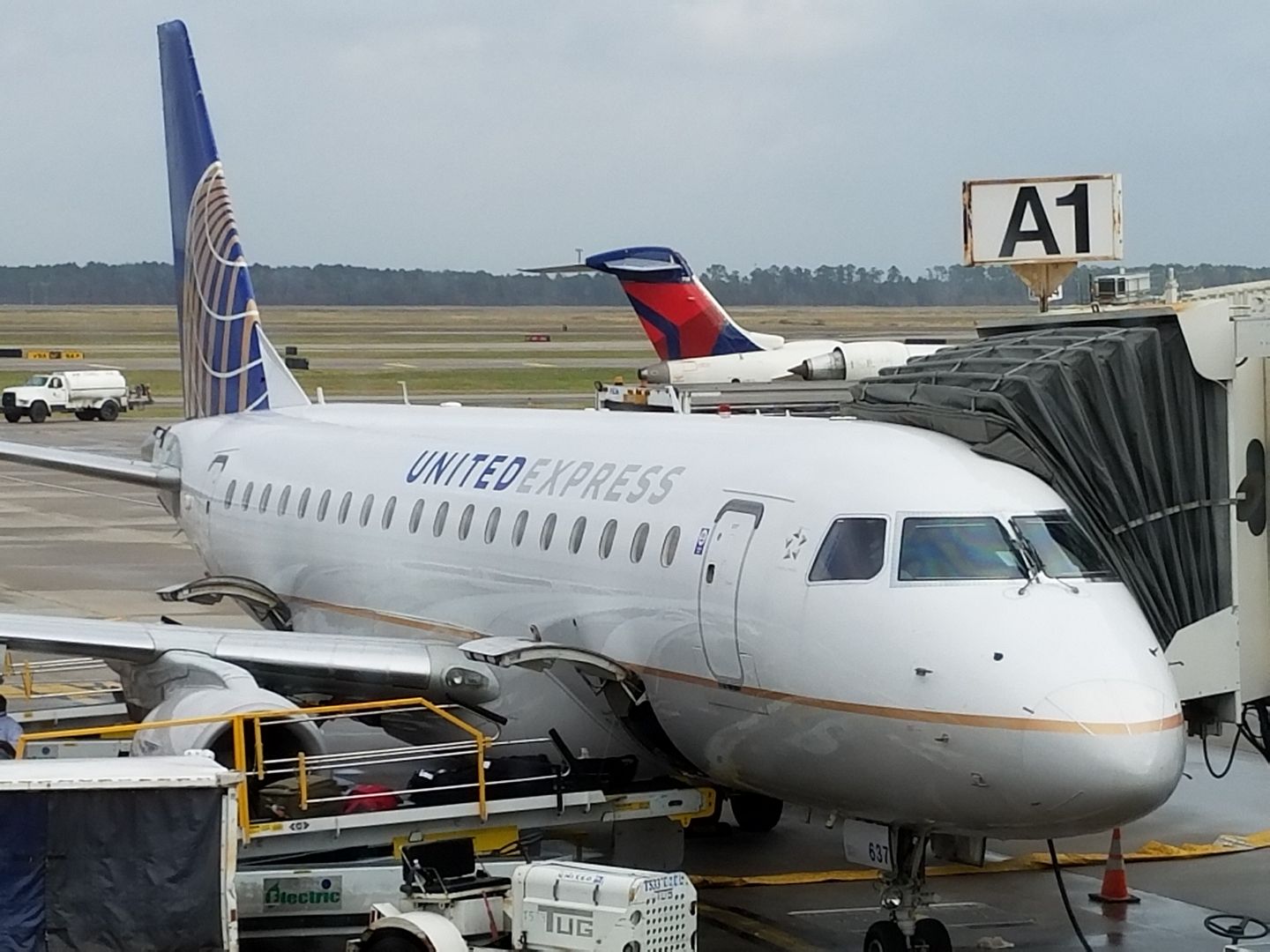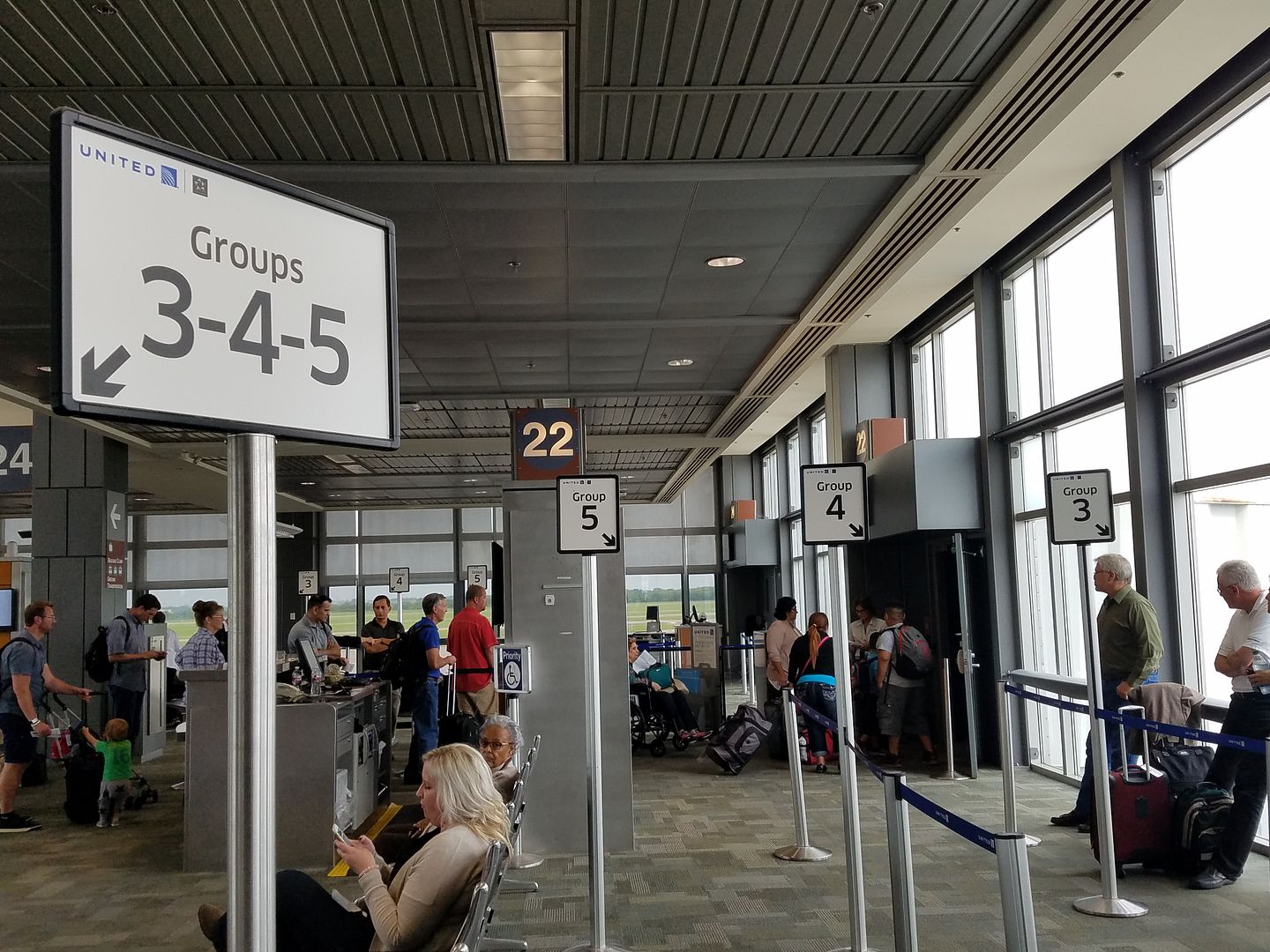United flight 3411 from Chicago to Louisville was the rarest of events – a passenger being asked to leave the aircraft to accommodate someone else after they are already in their seat.
I have seen it happen (I have also seen a passenger downgraded from first class to coach after boarding) – but not often.

Involuntary denied boardings are rare usually there are volunteers willing to bump for compenation. It happens on major US airlines about 46,000 times a year or to less than 1/10th of 1% of passengers.
Recently it’s been more common on JetBlue – which doesn’t oversell seats – than United (an airline can have too few seats for several reasons, such as a mechanical problem causing an airline to replace your plane with a smaller one).
I went on Fox News this afternoon talking about the United incident and ways you can avoid being denied boarding when you travel.
Here is what you want to know to give yourself the best odds involuntary denied boardings won’t happen to you.
- Be an airline’s regular customer. If you earn even the lowest level of elite status, or gain that status even through a hotel partnership (Marriott Platinums receive United Silver, for instance) you’re unlikely to be bumped. When the computer prioritizes who is asked not to fly, one criteria is elite frequent flyer status with the carrier.
- Reserve your seat in advance. Don’t just book a flight, make sure you have a seat. And consider avoiding flights where no seat assignments are available. While the airline may just be holding back a few seats for assignment at the gate, customers without a confirmed seat when no seats are left unassigned are the last to be accommodated, after the airline knows who fails to show up for the flight.
- Don’t book a basic economy fare because your fare will go into the prioritization of whom the airline will accommodate. If you do book that cheapest fare (available only on certain routes flown by Delta, United, and American) make sure to check in for the flight as soon as you can to maximize your chance of a seat assignment immediately.
- Check in 24 hours in advance of flying regardless of your fare, time of check-in can be a tie-breaker as well.
- Be at the gate at start of boarding. While an airline’s policies will say they don’t release a passenger’s seats until a certain number of minutes — often 15 — prior to departure (and then in practice only after boarding has completed) there are occasional stories of gate agents handling this a few minutes early in a rush to get the flight out on time. If that happens you may be able to fight for compensation but it will be tough to get your seat back in the few remaining minutes before the boarding door closes.

None of this solves the problem, when there are more passengers with confirmed reservations than there are seats not everyone is going to fly. And when passengers aren’t willing to give up a confirmed seat in exchange for compensation and a later flight, someone is going to be involuntarily bumped from their seat. These five steps are merely ways to reduce the odds that the bumped passenger will be you.


I think you missed:
6. Fly Delta
@C
Ithink you missed
Fly delta if you absolutely dont care about your miles and are willing to fly with an airline that practically laughs at their customers with what is considered the worst freqiuent flyer program
@Doug
Your argument held last year. Now AA and UA are revenue based too. Delta has the best actual operation as an airline.
@C
At the moment, UA and AA still have award charts, which counts for something. And I’d say that DL laughs at their customers by willy-nilly changing award prices.
I picked up the SkyMiles card from DL, added enough points to get an award to the Phillipines, and then right after I booked, DL jacked up the award cost. After that, there’s nothing they can do with their miles program to woo me as a customer.
Wow — Gary! What in the world would have prompted you to put up this ridiculous post – right on the heels of all the flak you took for every other post you put up on this topic? This reminds me of one of those newspaper articles and titled something like “insider secrets to successful air travel”, followed by bullet points advising us to be sure to make reservations in advance, not to overpack, and to be really nice to the gate agent in case they decide to give you a free upgrade.
You have squandered a great deal of your credibility on this unfortunate incident.
@Steve this is a basics post, not something for travel experts. By the way there are hundreds of thousands more readers than usual this week, not everything is for the hardcore. Sorry you feel only people who disagree with you are credible.
Learn martial arts or MMA. They will probably skip you if they decide to drag a passenger out. LOL!!!!
@C
Yes on operation, but still the worst when it comes to award charts and value for miles
Their skypesos are worthless
my wife voluntarily left me.
@Steve
While I did disagree with most of Gary’s take on the recent headlines, this post is actually useful for the average person who wants to know how to ensure they get on the flight that they paid for. The other snide remarks you made are to main stream media references just aren’t true. Is there anything in this post that you think is wrong?
@bob
Mine reaccomodated with her boyfriend
@Dan. is there anything in that post that I think is wrong? Why don’t we start with The suggestion that we get to the gate before they start boarding; and be sure to get seat assignmentsz. Let’s ask Dr. Dao how much good those things do – as soon as he recovers well enough to speak again.
Gary deserves all the snark he is getting on this topic.
This is useful information but don’t confuse it with the most recent incident since that particular United flight was not overbooked it was sold to capacity. They needed 4 seats for United employees who needed to re-position to Louisville not for paying passengers. Overbooking a flight is when the airline actually sells more seats than the aircraft can accommodate. That was not the case on the Louisville flight.
@Steve nowhere do I suggest these would have helped prevent the police brutality against Dr. Dao.
Again: Not Police
Gary – I’ll do you a favor and return to my seat. I guess I’ve had all I need of the wing. Adios.
@Steve and I blame United for failing to identify the need to move crew prior to boarding (or failing to notify the gate prior to boarding), and for calling the police on a customer in the first place.
What’s your beef? That I believe standard industry practice is that the United incident was indeed an involuntary denied boarding situation? That I think it’s a good idea — for self-preservation — to get off the plane when ordered by the airline and police? [None of which excuses the behavior of either the airline or of police]
Emotions are very high on this issue, for sure, and I’m sad that we can’t say what we mean clearly, disagree even (though I’m not sure exactly what issue you’re picking a bone with me on).
But for sure read what makes you happy!
Best,
Gary
Gary is anti-police. If you want to blame United. Have at it.
out of curiosity, why are we even talking about IDB?
there has been no recent incident involving IDB, and more to the point, IDB is something you aim for, not avoid. your rights and compensation are better if your denied boarding is involuntary, rather than voluntary. and airlines can and will use dirty tricks to prevent you from boarding, and then pretend it was VDB.